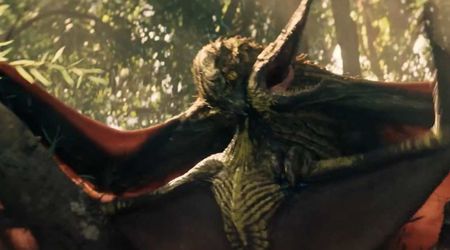'Fauda' Season 3 Review: Doron turns Judas, destroys the Hamdan family as conflict consumes another generation

Male father figures, both absent and present, litter the 'Fauda' Season 3 landscape as men and boys are shaped by the Israel-Palestine conflict. In the Arabic language, men who become fathers are addressed by a second name that indicates that they have someone to carry on their lineage. Abu Bashar, for instance, means "father of Bashar", while Um Bashar means "mother of Bashar". So Jihad Hamdani (Khalifa Natour) is also called "Abu Bashar", the father of Bashar, the "Rocky" of Dhahiriya -- a Palestinian town, south of Hebron, in the West Bank.
When the show starts, Jihad is an absent father figure, having been in prison for 20 years for being part of "the Movement" led by Hamas. Instead, he becomes the "father of the prisoners" to the fellow Palestinians behind bars with him. He holds the exemplary record of never cracking under interrogation. He has been in there for so long that the guards allow him to take small liberties like cooking sweet dishes for prisoners about to be released.
It is Jihad's absence that allows Doron (Lior Raz), who is undercover as the boxing coach, Abu Fadi, to become a father figure to Bashar. Doron genuinely enjoys being Bashar's male role model because he is estranged from his own son. However, Doron's real target is Hamas terrorist, Abu Fauzi (Amir Hativ), the son of Nasser Hamdan (Mahmud Abu-Jazi), Bashar's uncle. The Shin Bet, Israel's internal security agency, has intel that Fauzi is planning something big in West Bank and has sent Doron undercover to locate and stop him.
Doron gets close to the Hamdan family through Bashar as he teaches boxing at the "Dhahiriya Fight Club" run by Nasser. Bashar's mother, Nur, and sister, Hayfa, ask him to attend the big welcome party to celebrate Jihad's release from prison. Jihad is happy to put the violence behind him to focus on family, even refusing money and a job from "the Movement" when he returns. Bashar too is an innocent, far from Hamas intrigues, dreaming only of his boxing match in Amman in two weeks and his Bedouin girlfriend, Safaa at the start of the show. What a difference two weeks can make when the Israel-Palestine conflict is a constant backdrop to a life lived.
In a series of twists and turns, Doron is forced to use Bashar to force Fauzi out in the open after he and his men open fire on Captain Ayub Gabi, the intelligence head, and his men, just when they are about to sign a security cooperation treaty with the Palestinian Authority in West Bank. In the process, Fauzi is killed and Bashar is branded a traitor. Abu Mohammed aka "Hani Al Jabari", called the "angel of death" by Shin Bet, visits Jihad Hamdani to tell him that Bashar has to kill Doron and become a "shahid" to pay for his "betrayal" that resulted in Fauzi's death. "Someone has to pay," he threatens. It is no use explaining that Bashar was played by Doron, posing as Abu Fadi.
Squeezed between Hamas and Israel's IDF, Fauda's Season 3 shows exactly how Bashar, the innocent, becomes Bashar "the terrorist" after Doron's Judas turn. After Fauzi's death in West Bank and Nasser's failed attempt to kill Doron to redeem Bashar, the action shifts to the Gaza Strip. Bashar and Jihad cross the border into Hamas's stronghold with two hostages, Yaara and Elaad, two young Israelis barely out of their teens. Jihad buys the life of his son with these two hostages but feels guilty and so does Bashar.
As Hamas is negotiating with Israel for a "prisoner swap", Doron and his unit, headed by Eli, are in on the ground in Gaza in a risky covert mission to rescue Yaara and Elaad. Doron, still sure he can get through to Bashar and get him to cooperate, makes a tactical error that ends up costing his team member, Avihai's life.
In the ensuing episodes, we see the body count rise, the most significant ones being Jihad Hamdani's death at Doron's hands and Elaad's death in a botched escape attempt. By the time the 12-episode show wraps up, Doron too loses more than he can stand.
The show's most terrible ending has Bashar deliver his "knock out punch" to Doron to make sure he goes "to sleep sad that night". The last shot is of Bashar entering the same prison that his father had before him. The show excels in showing the morally gray zone the Israeli "heroes" have to operate in to do their job.
This is especially true of Doron and his lover, Hila Bashan (Marina Maximilian), the Head of the Gaza Desk, who is described as a "guided missile" in her obsession to bag "Hani Al Jabari". So much so that she fakes intel to make Captain Gabi OK the risky operation that costs Avihai's life.
Doron calls people like her and people in his unit "cursed" because they always answer the call to arms. But the show makes you wonder that as the cycle continues, with new generations of fathers and sons taking up old positions on opposite sides, if the "curse" visited on families on both sides will ever end.
'Fauda' is available to stream on 'Netflix' from April 16 onwards.










